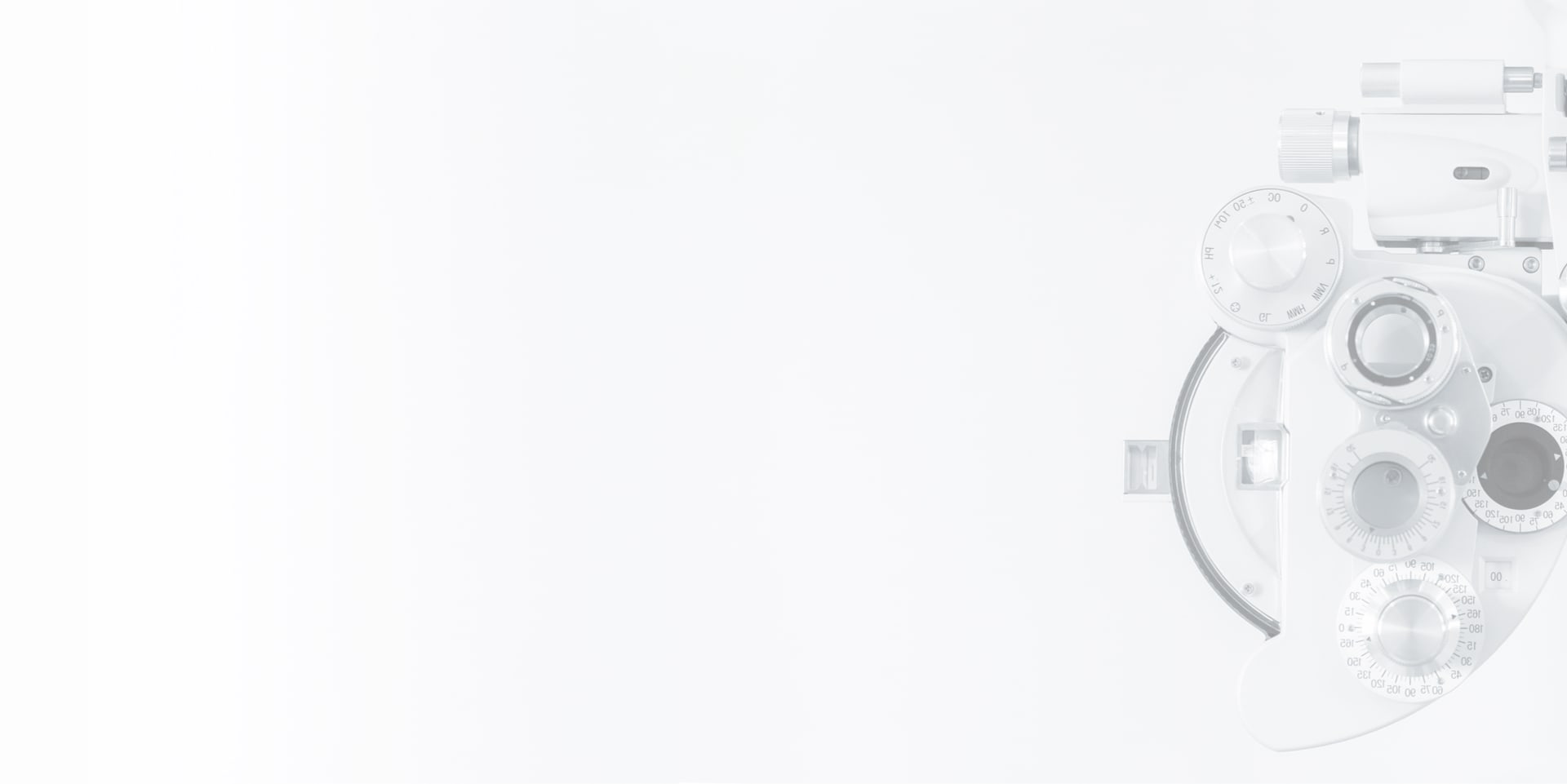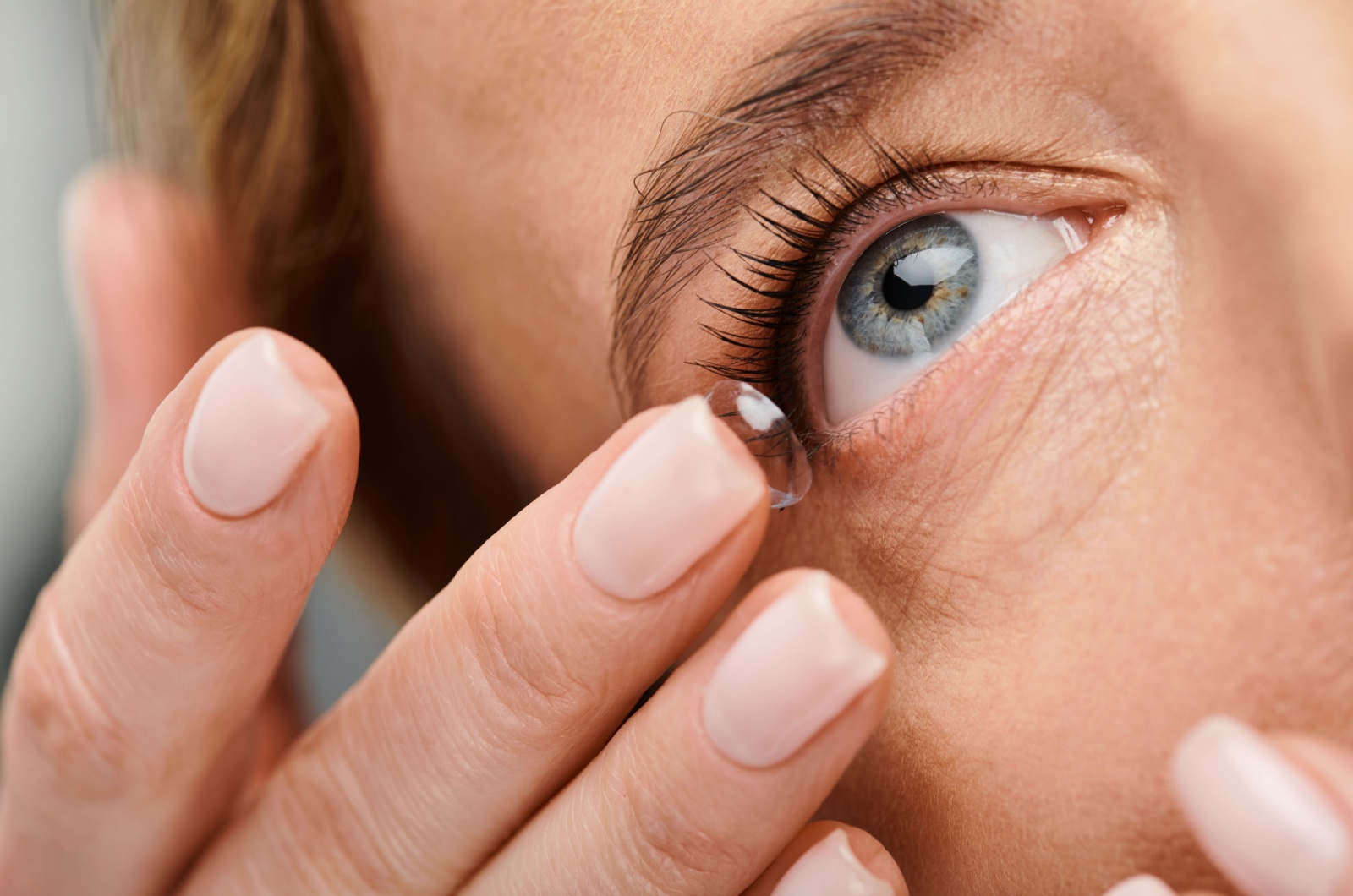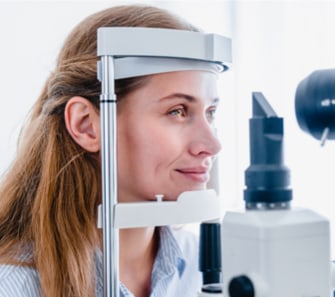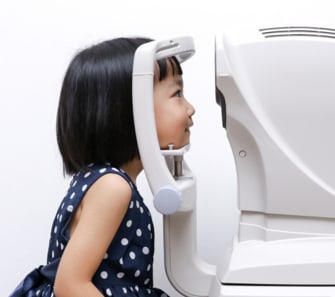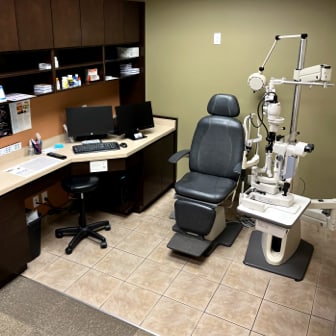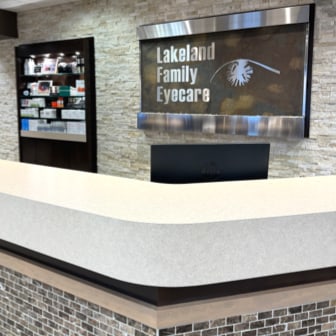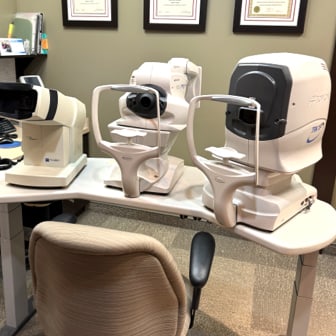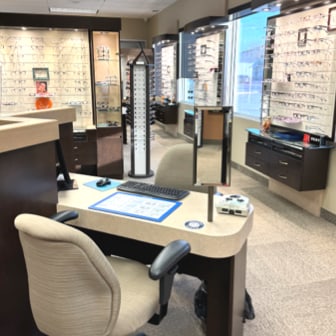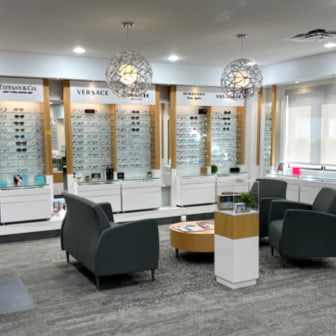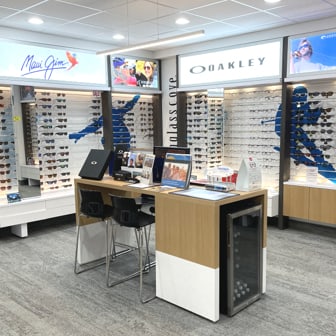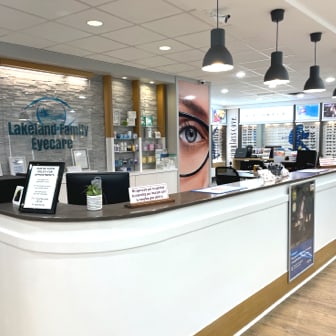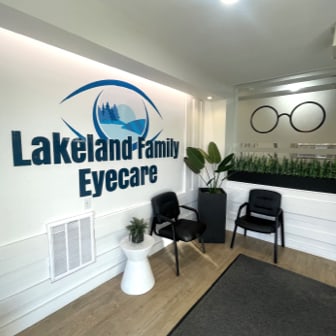Whether you’re a long-time contact lens wearer or considering a switch from glasses, understanding how these tiny discs work can help you make informed decisions about your vision care needs.
Contact lenses sit directly on the eye’s surface and compensate for any errors by helping light refract correctly on the retina (the light-sensitive tissue at the back of the eye) to create a clear image. With the help of a contact lens exam, your eye doctor can determine the right contact lenses for you.
What Are Contact Lenses?
Contact lenses are thin, clear plastic discs that sit on the cornea or front layer of the eye. Like glasses that help light refract properly on the retina, contact lenses also compensate for refractive errors, such as nearsightedness, farsightedness and astigmatism, to provide vision clarity at varying distances.
Types of Contact Lenses
Various contact lenses cater to specific vision needs and lifestyle requirements, from daily disposables to multifocal lenses, ensuring there’s something for everyone.
Soft Contact Lenses
Soft lenses are the most common type, made from flexible plastics that allow oxygen to pass through to the cornea. They are comfortable and easy to adjust to, making them a popular choice for many.
Soft lenses are available in various forms, including daily disposables and monthly wear lenses. They’re ideal for correcting common vision issues like nearsightedness, farsightedness, and astigmatism.
Rigid Gas Permeable (RGP) Lenses
RGP lenses are more durable and provide sharper vision than soft lenses. Made from a firm, oxygen-permeable material, they maintain their shape on the eye, which helps correct astigmatism and other complex refractive errors. While they may take a bit longer to get used to, their longevity and high-quality vision correction make them a worthwhile option.
Hybrid Lenses
Hybrid lenses combine both worlds, such as the comfort of soft lenses with the clear vision of RGP lenses. They feature a rigid center with a soft outer ring, providing excellent vision correction and comfort. These lenses are particularly beneficial for individuals with irregular corneas.
Scleral Lenses
Similar to RGP and hybrid lenses, scleral contact lenses are made of a more durable rigid material. They are larger and sit on the sclera to vault over the cornea to create a new corneal shape. These lenses are also beneficial for individuals with irregular corneas.
How Contact Lenses Work
Contact lenses are designed to correct refractive errors in the eye. Refractive errors occur when the eye does not bend light correctly, resulting in blurred vision. Contact lenses compensate for these errors, helping light focus properly on the retina.
Contact lenses sit directly on the tear film covering the cornea, creating a uniform surface that corrects how light enters the eye. For example, in the case of nearsightedness, the lens helps focus light that enters the eye directly on the retina instead of in front of the retina. Similarly, for farsightedness, the lens helps light refract directly on the retina instead of behind it.
Benefits of Contact Lenses
Switching from glasses to contact lenses offers a range of benefits, such as:
- Convenience: Contact lenses provide the freedom to engage in physical activities without worrying about glasses falling off or getting damaged.
- Protection: You can get contact lenses with UV protection built in.
- Comfort: Modern lenses are designed for maximum comfort, allowing extended wear without irritation.
- Visual acuity: Contact lenses provide a wider field of vision and eliminate the distortions that can occur with glasses.
- Aesthetic appeal: For those who prefer not to wear glasses, contact lenses offer a natural look without compromising vision quality.
Choosing the Right Contact Lenses

Selecting the right contact lenses involves considering several factors:
- Lifestyle: Think about your daily activities. Are you active in sports? Do you spend long hours in front of a computer? Your lifestyle will influence the type of lenses suited for you.
- Eye health: Consult your eye doctor to assess your eye health. Certain conditions may make some types of lenses more appropriate than others.
- Personal preferences: Comfort, convenience, and cost are all important factors. Daily disposables might be ideal for someone who values convenience, and monthly lenses could be more cost-effective for regular use.
Contact Lens Safety & Hygiene Practices
To maintain optimal eye health, follow these essential contact lens hygiene practices:
- Wash your hands: Always wash and dry your hands thoroughly before handling your lenses.
- Clean and store properly: Use the recommended cleaning solution, and never use tap water to clean or store your lenses.
- Follow the replacement schedule: Adhere to the replacement schedule provided by your eye doctor to avoid complications.
- Avoid sleeping with lenses: Unless specifically designed for overnight wear, remove your lenses before sleeping to prevent infections.
- Replace your lens case: Change to a new contact lens case every 3 months.
Contact Lenses for Your Needs
Contact lenses offer a fantastic way to correct vision while providing comfort and convenience. Understanding the types of lenses available and how they work allows you to make informed decisions about your eye care.
Always consult your eye doctor to find the solution for your needs. Schedule a contact lens exam with Lakeland Family Eyecare today to discover the perfect pair.
